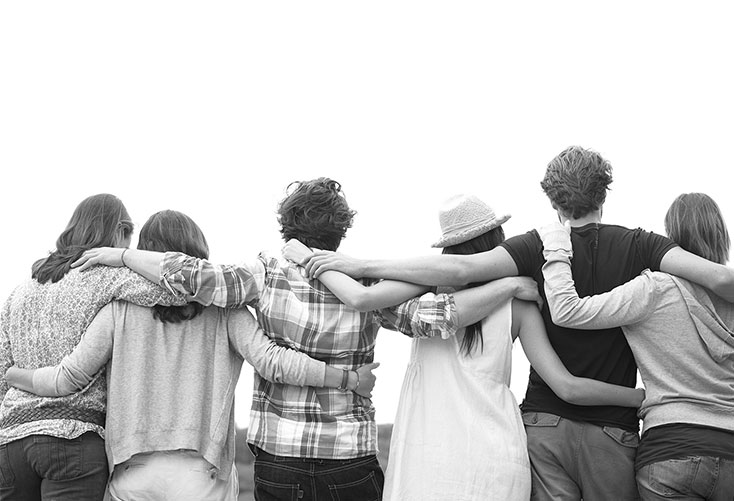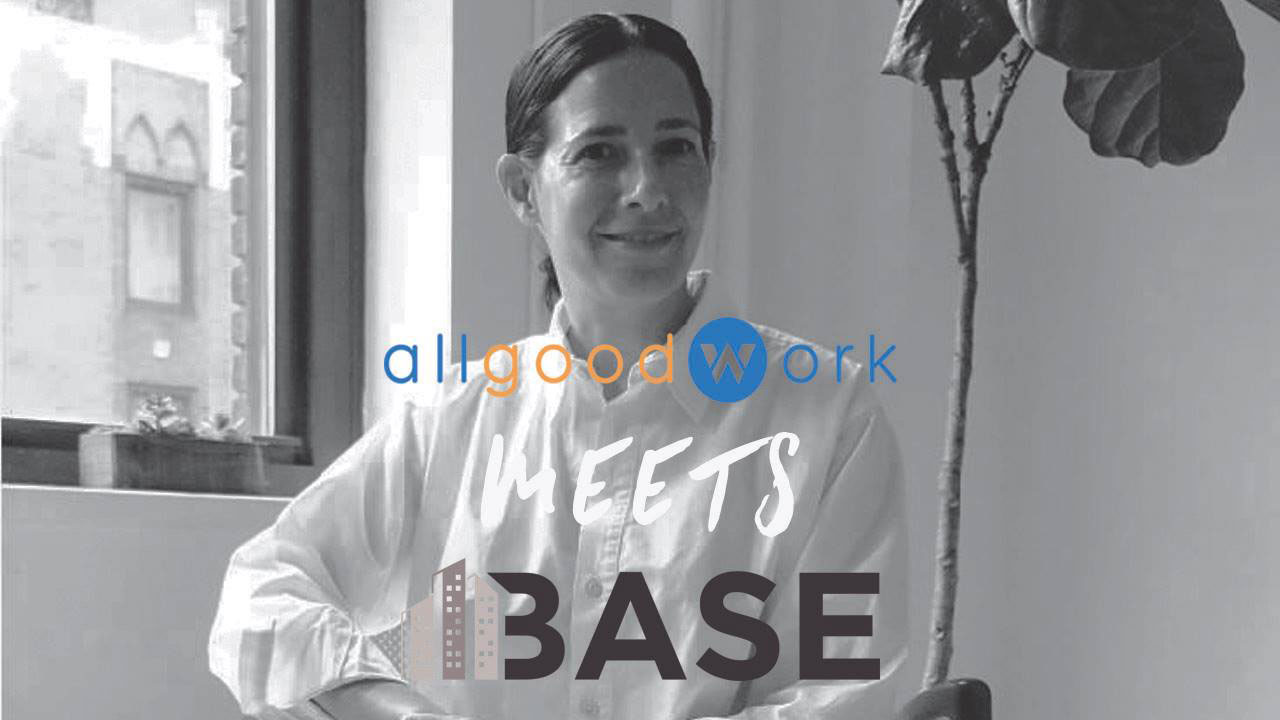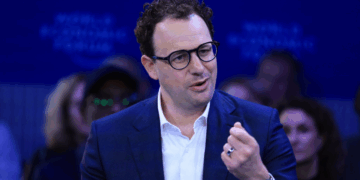This article was written in collaboration with Nate Heasley.
Marla “MZ” Goodman is a self-confessed “activist mom and problem-solver”. When she’s not building digital products for consumer brands or spending time with her family, she’s laying the groundwork for a pretty amazing master plan in New York City, called BASE.
BASE is developing urban co-living spaces for young adults with learning differences or social challenges. It’s a nonprofit organization that’s set to create residential urban communities to help young adults live independently and build life skills.
Marla spent many months “running around the city for meetings” and working anywhere she could find a Wi-Fi connection. Through All Good Work, a foundation that matches social impact organizations with workspaces who have room to spare, Marla found a home at Blender in Manhattan.

Nate Heasley, Executive Director of the All Good Work Foundation, caught up with Marla to learn more about BASE ahead of the launch of their first residential community in 2018.
Tell us a little about your organization.
BASE develops and manages urban co-living residences for high-functioning young adults whose challenges fall anywhere from learning disabilities and Attention Deficit Hyperactivity Disorder (ADHD) to Autism Spectrum Disorders (ASD). Our innovative, onsite programming supports social interaction among residents to build community, self-esteem and self-sufficiency.
What motivates you to do what you do?
My son has material learning disabilities. I’m an activist mom and a problem-solver by nature and by vocation (in my other life I build digital products for consumer brands) and there is so much to fix in the special needs space. There has been a huge increase in prevalence of diagnosis of ASD and related disorders over the past decade, and we need more options for these young adults once they complete their education.
What drew you to the All Good Work residency program?
I heard about All Good Work through one of the social impact newsletters I receive. I’d been working here and there — at home, at Starbucks, wherever I could find reliable Wi-Fi and a seat — and running around the city for meetings. The idea of having a quiet and comfortable base from which to work, and to have it be subsidized (#bootstrapping!) was a great opportunity.
How has working at Blender changed or impacted your work?
Blender has been a haven for me. I work much better with structure, and having a place to go and a spot where I can hold meetings and conversations helps me get so much more done. It helps that Blender is a centrally-located, well-appointed space: as an early-stage business we derive a lot of legitimacy from being at Blender. And the founders have helpfully shared their start-up and coworking expertise with me, which I’ve greatly appreciated.
Would you like to share any exciting plans coming up over the next few months?
We have almost 100 families on our mailing list and have lined up programming partners. We’ve outlined our value prop for residents, parents and real estate development partners. Now we’re focusing on finding a strategic real estate partner to help bring BASE to life. We’ve had lots of interest from developers and I hope to have some good news to share soon.
Where can we find out more?
Visit base.community. You can also read more about BASE on Blender’s blog.



 Dr. Gleb Tsipursky – The Office Whisperer
Dr. Gleb Tsipursky – The Office Whisperer Nirit Cohen – WorkFutures
Nirit Cohen – WorkFutures Angela Howard – Culture Expert
Angela Howard – Culture Expert Drew Jones – Design & Innovation
Drew Jones – Design & Innovation Jonathan Price – CRE & Flex Expert
Jonathan Price – CRE & Flex Expert












